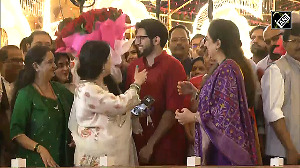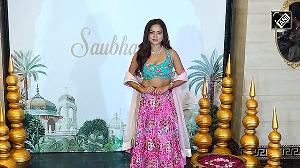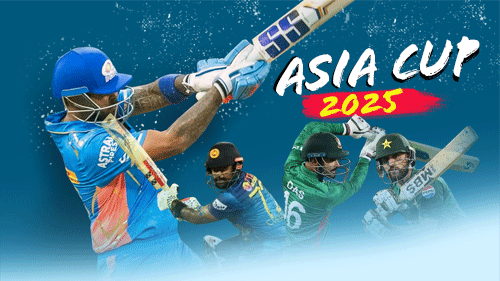After a magnificent end to the current season, Indian long jump icon Anju Bobby George has her eyes set firmly on the various high-level competitions she aims to win next year.
With very little left to achieve at the Asian level, where she has already established herself as the marquee athlete, Anju is now eyeing glory on the biggest stage.
 "We have the World Indoor Championships in Moscow in March followed by the Commonwealth Games in Melbourne for which I would have to be at my best," she said in an exclusive interview on Sunday.
"We have the World Indoor Championships in Moscow in March followed by the Commonwealth Games in Melbourne for which I would have to be at my best," she said in an exclusive interview on Sunday.
"We also have the World Cup in Athens and the World Championships in Stockholm apart from the Asian Games in Doha, so it is going to be a pretty hectic season," said Anju, fresh from her silver medal winning effort at the World Athletics Final in Monaco.
She had missed the World Indoor Championships last year and had finished seventh in the 2003 edition staged in Birmingham.
"We cannot afford to prioritize events, as all of them contribute towards IAAF world rankings. I am aiming for victory in all of them," Anju said.
The lanky Kerala athlete admitted that competition at the Asian and Commonwealth level is not very stiff and she had very little to prove there.
"Only 22 countries participate in the women's long jump in Asia and only 70-odd in the Commonwealth countries," she said, adding "more than 200 countries are in the reckoning at
World Championships and World Cups."
Attributing Anju's recent good performances to a decent build-up in preparation, her husband and coach Bobby George said they constantly worked on various techniques to increase the distance she could leap.
"We are still learning and constantly experimenting with various sprinting techniques to see what can provide the best performance," Bobby said.
Adjusting to various weather conditions at different venues was also part of the process.
Responding to a query about the less impressive performances leading up to the Helsinki World Championships, Bobby attributed it to allergies, knee pain and general wear and tear on Anju's body.
Anju plans to start training in Bangalore after a rest of two or three weeks and then leave for Melbourne in January for acclimatisation before the Commonwealth Games. She is also scheduled to undergo a short training stint in California before the major events start rolling.
"The US, Australia and Europe have the best facilities and equipment needed for advanced training which are lacking in India," she said.
"When training in India, I have to fill my car with equipment and even a portable massage table," Anju said.
Analysing Anju's technique, her coach said she is not blessed with great strength or speed but "makes the best use of her attributes to deliver an outstanding combination."
"At the top level of international competition, there is very little difference between the various jumpers and who performs best on the day wins," said Anju, who might make it to the top three in the IAAF world rankings after her Monaco performance.
Asked when would she be able to breach the magical seven metre mark, Bobby claimed his wife regularly jumped close to 6.90m in training in Bangalore and hoped going the extra distance would not take long.
Only Russia's Irina Simagina has been able to cross seven metres twice this year but Bobby said she did it in smaller competitions in her country where competition and pressure were considerably less.
"It is much tougher to give your best performance in major events when the whole world is watching."
When the discussion comes down to the doping scandals dogging Indian athletics, Bobby was quick to jump to its defence.
"Do you know that weightlifting and athletics are the two sports with the largest number of dope tests being carried out?" he asked, adding other sports like cricket and football seemed to have taken a more laidback view on the issue.
"We have instances when players in other sports have been found to be taking banned substances but were let off with a lenient sentence," he said.
He said some of the athletes might be taking performance-enhancing drugs inadvertently due to a lack of awareness but admitted "one is responsible for whatever substance is found in one's body".
"India has a very transparent drug testing system and we compare well to countries like China and Russia whose athletes are also suspect," Bobby said, adding that Anju carried a certificate from the World Anti-Doping Agency, which hails her as a 'clean' athlete.
Athletes in other countries might be using more effective masking agents to hide banned substances, he said.
On the contribution of American great Mike Powell to Anju's success, Bobby shot back "nobody can create a champion in the short time that he spent with us.
"Powell was with us for two months in California and 14 days in Europe and that is too little a time to transform a jumper.
"We in India tend to think too highly of foreign experts and discount our own who are well versed in our background," he said.
However, he hastened to add that Powell was a "nice person" and admitted that he helped out Anju with his experience and motivation.
"But when a lot of hue and cry was made on the issue, we decided not to use his services as Anju is more comfortable with my coaching style.
"If former American athletes are such good coaches, how can one explain that none of the current American jumpers like Tianna Madison, Grace Upshaw and Rose Richmond are trained by either Powell or Carl Lewis?"
Anju complained about the lack of athletics coverage in the Indian media, saying that prevented youngsters from taking to the sport.
"The major events in Europe are held to packed stands and I am recognised at various venues with people asking for my autograph which seldom happens here," Anju said.
She also lamented the lack of high-level athletics events in India to expose the public to the various disciplines.
Photograph: Indranil Mukherjee/AFP/Getty Images






